15 Signs Your Job Has Compromised Your Mental Heath
Let’s be honest: No job is perfect. Your boss probably annoys you; your co-workers might talk all day, every day; and you’ve probably picked up someone else’s slack more times than you’d like to admit. However, while every job has its ups and downs, your mental health shouldn’t be spiraling out of control because of it.
In a 2005 study, 25 percent of people witnessed daily workplace incivility and 50 percent said they were victims of it at least once a week in the previous year. In addition, more recent studies have determined that employees who have experienced workplace incivility, such as low job security and social support, can develop adverse effects, like increased depression, impaired job performance or decreased job satisfaction.
Luckily, due to the increased awareness of toxic workplace culture, companies across America have been developing programs to combat incivility, but that doesn’t mean things are perfect. So to help determine if your job is negatively affecting you, we connected with a few experts to find out the signs you should look out for to determine if your mental health is in jeopardy.
1. Your Sleep Schedule Has Changed
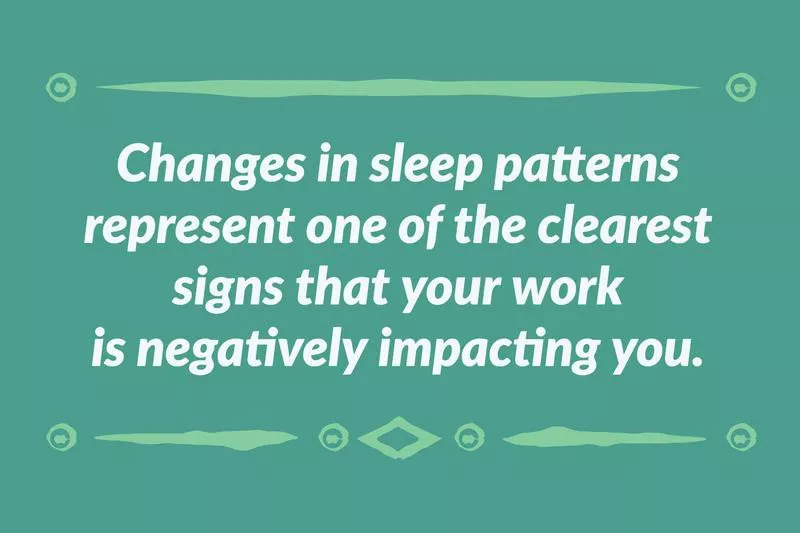
“Changes in sleep patterns represent one of the clearest signs that your work is negatively impacting you outside of your job,” said licensed New York psychologist Gregory Kushnick.
It’s common knowledge that your mental health can deteriorate when you don’t get enough sleep. But it can be hard to end this vicious cycle when your job is the culprit for your lack of sleep. Instead of calling out from work, try to determine what exactly about your job is causing your restless nights. The minute you determine this, the earlier you can address it and get back to counting sheep.
2. You’re Overcome With Fear While at Work
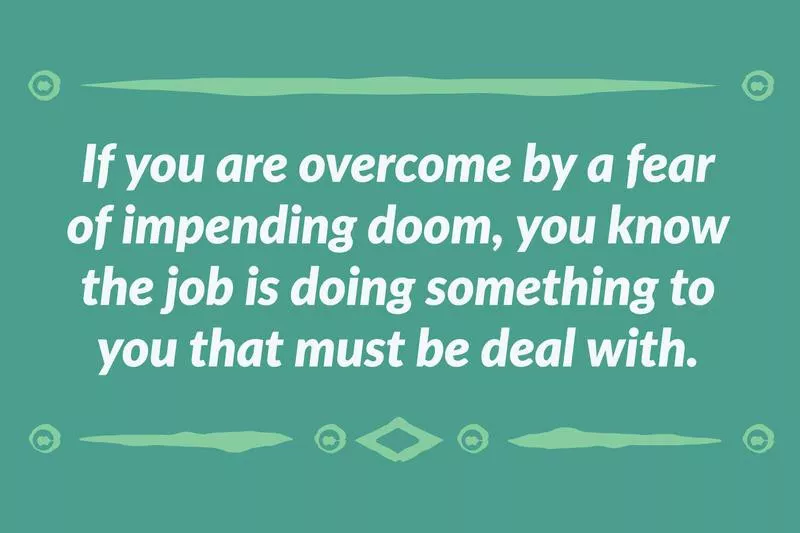
The lack of stability at your job can cause mental stress over time, especially when clear communication isn’t a major concern at the office. Constantly worrying about your company or your performance can cause anxious thoughts and trust issues.
“You can identify if your job is the source of mental health issues by the presence of subtle or obvious shifts in your physical and mental state on a workday versus the weekend,” said Kushnick. “If you enter work and are overcome by a fear of impending doom or you lose hope, you know the job is doing something to you that must be deal with.”
3. You’ve Become a Recluse at Work
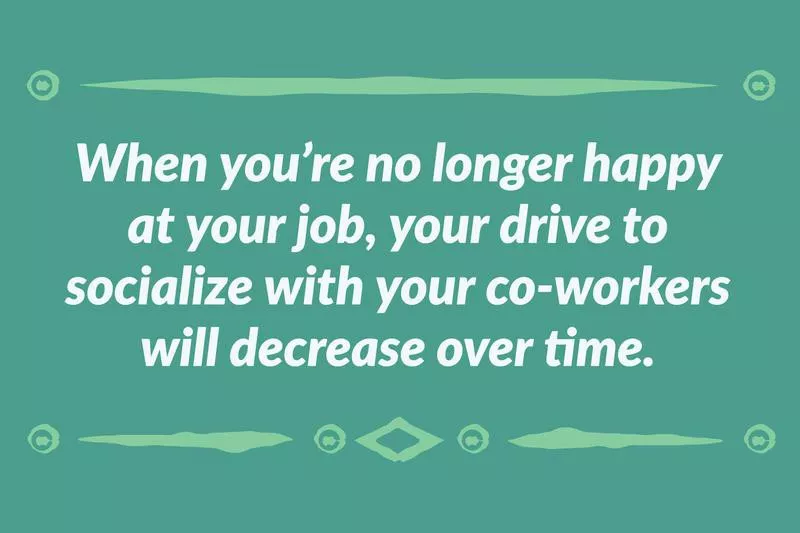
When you’re no longer happy at your job, your drive to socialize with your co-workers will naturally decrease over time, especially if you no longer trust them. According to Kushnick, you may “find yourself avoiding any conversations at work” and may even separate yourself from the team entirely just to get work done.
4. You’re Unable to Relax at Home or Work
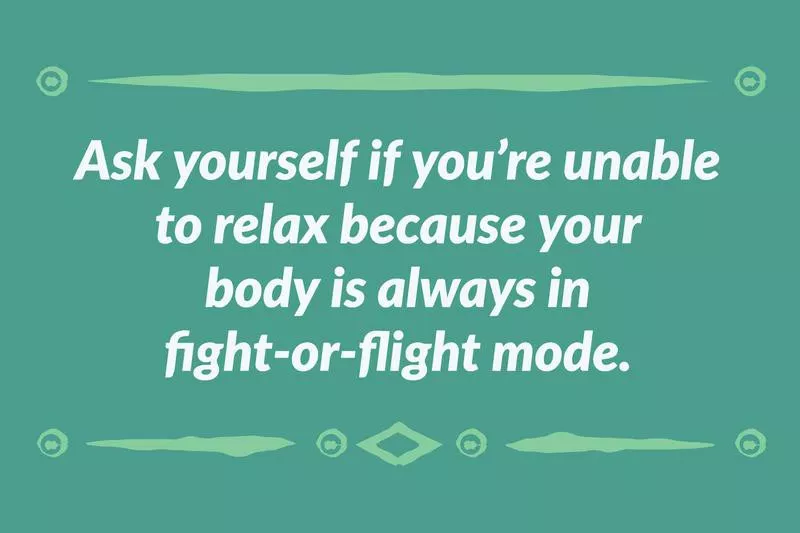
While it’s normal every now and then to have a stressful night after a long day at the office, it shouldn’t be something you experience every single night. According to Kushnick, if you’re unable to relax because your body is always in fight-or-flight mode, then you may want to consider that your job could be affecting your mental health. Those suffering may “never feel refreshed and ready to face the day,” said Kushnick. “Or you cannot slow down and sit with the contents of your mind.”
5. You’re Easily Angered by Your Co-Workers or Boss
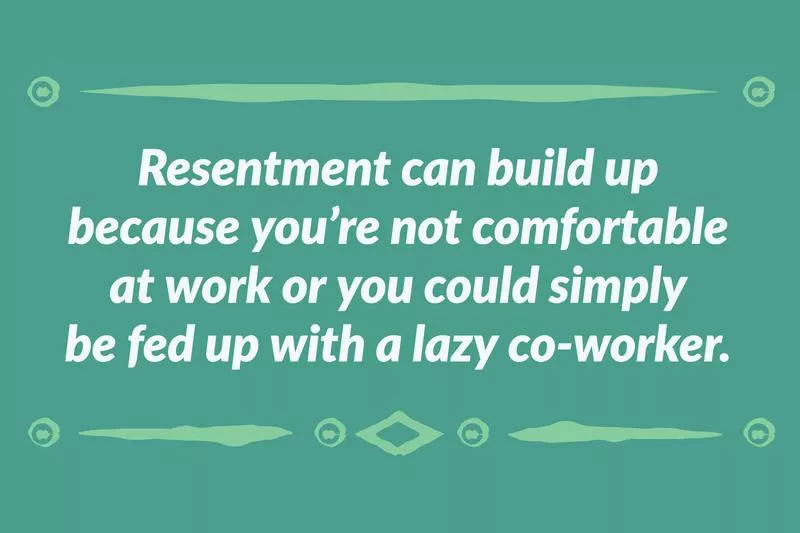
When your mental health has taken a nosedive because of your job, you’re more inclined to snap at the littlest issues at work, even when you don’t mean to.
“When it takes very little from a co-worker to set off your anger, [it could be a] sign of pent-up resentment,” said Kushnick. Resentment can build up because you’re not comfortable at work or you could simply be fed up with a lazy co-worker. Either way, try to figure out where this anger is coming from so you can let go of it and move on.
6. You’ve Stopped Taking Care of Yourself
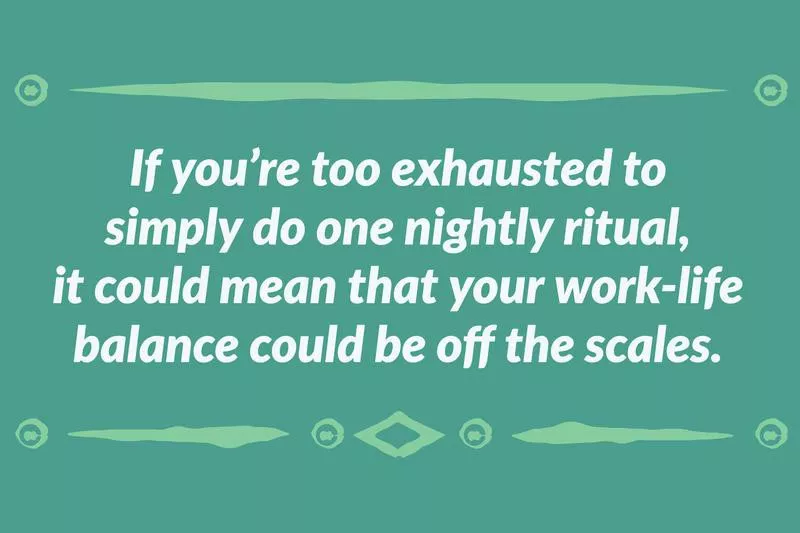
Although it would be nice to partake in self-care rituals every night, sometimes work just gets in the way. However, if you’re utterly too exhausted to simply do one nightly ritual, it could mean that your work-life balance could be off the scales. “Constantly canceling plans or significantly neglecting self-care routines (i.e., yoga, gentle nutrition, etc.) are signs that your mental health issues at work are impacting you outside of work,” said Kushnick.
7. You Dread Going Into Work
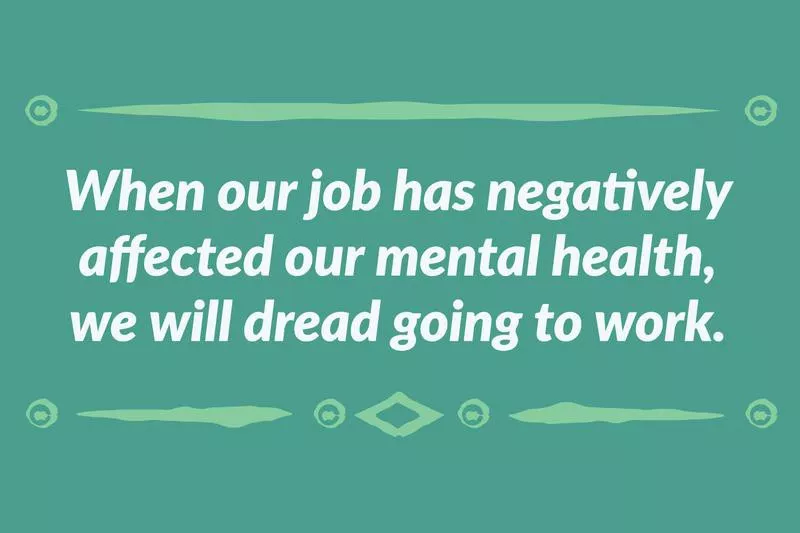
Feeling resistance to your career or job early in the morning can place you in a pessimistic mindset all day. And when you’re unable to pull yourself out of it, you’re more inclined to notice the negative situations over the positive. “When our job has negatively affected our mental health, we will dread going to work,” said trauma therapist and author of “Healing from Hidden Abuse,” Shannon Thomas. “An emotional heaviness can weigh us down and make going to work feel overwhelming. We may find ourselves trying to avoid getting to work by chronically arriving late.”
8. Your Anxiety Is at an All-Time High
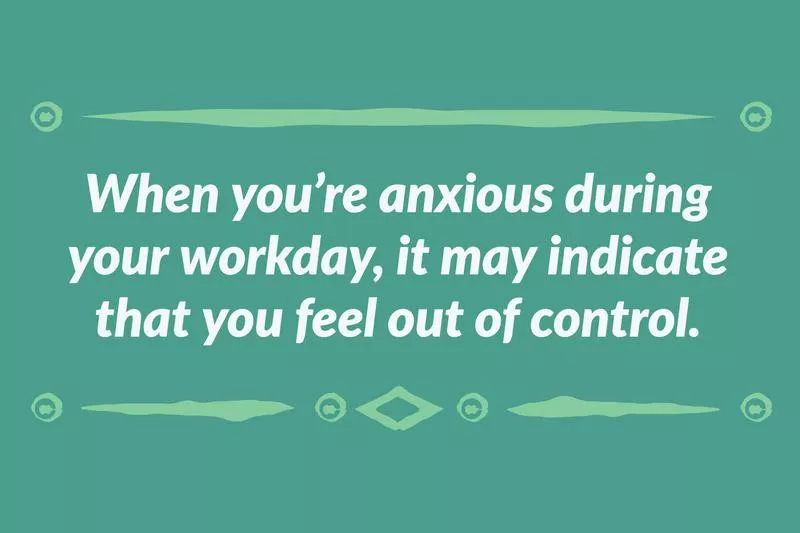
“Anxious feelings before going to work is a sign that our job may be negatively impacting our wellness,” said Thomas. “Anxiety is an indicator that our nervous system is on adrenaline overload.” When anxiety becomes a prevalent part of your workday, it may indicate that you feel out of control in the situation you’re in.
9. You Show Signs of Situational Depression

When you’re working 40 hours at a place that doesn’t make you happy, your mental health can plummet and affect the rest of your life. You may find yourself looking at your phone more often, making excuses to hang out with your friends or giving up trying to find a new job.
“Situational depression is common when our work environment is negatively affecting our mental health,” said Thomas. “We notice our mood even outside of the office is lower than normal. We will find ourselves frequently daydreaming about walking in and quitting our job on the spot. And Sundays become a day of dread because we know we have a long week of work ahead of us and the idea [of going into the office] is depressing to our mood and emotions.”
10. You’re Feeling Stressed More than Normal
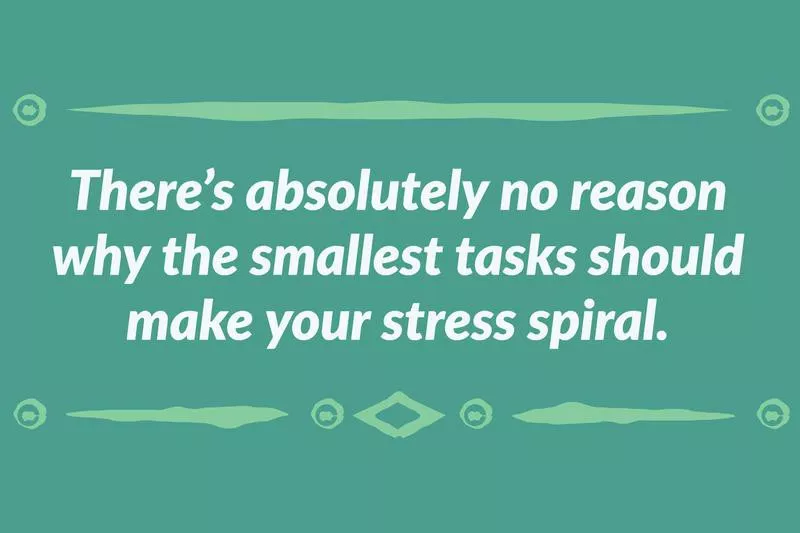
While it would be a dream to go through a workday without feeling any amount of stress, that’s simply not realistic. However, there’s absolutely no reason why the smallest tasks, like sending a minor email or having a weekly meeting with your boss, should make your stress spiral, unless your job is negatively affecting your mental health.
“If an employee feels increasingly irritable or stressed due to work issues, this is also a sign that the job is negatively affecting their mental health,” said clinical psychologist and author Carla Marie Manly.
11. You’re Afraid You’re Going to Be Fired
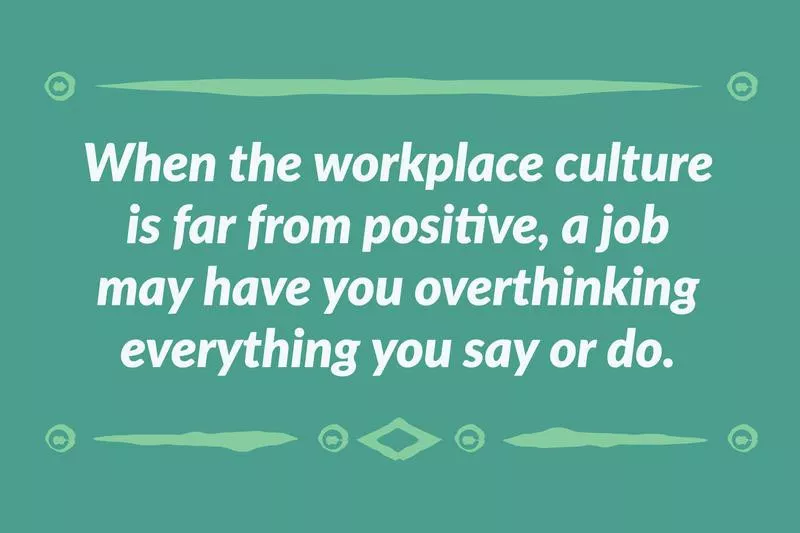
Let’s not kid: Imposter syndrome is real and most of us experience every single day. But like any other toxic relationship, when the workplace culture is far from positive, a job may have you overthinking everything you say or do. According to Manly, “The affected employee might feel chronically stressed, increasingly anxious, fearful of getting fired, and hypervigilant. The stressed employee may have a sense of ‘constantly walking on eggshells.’”
12. You Don’t Feel as Invested in Your Work
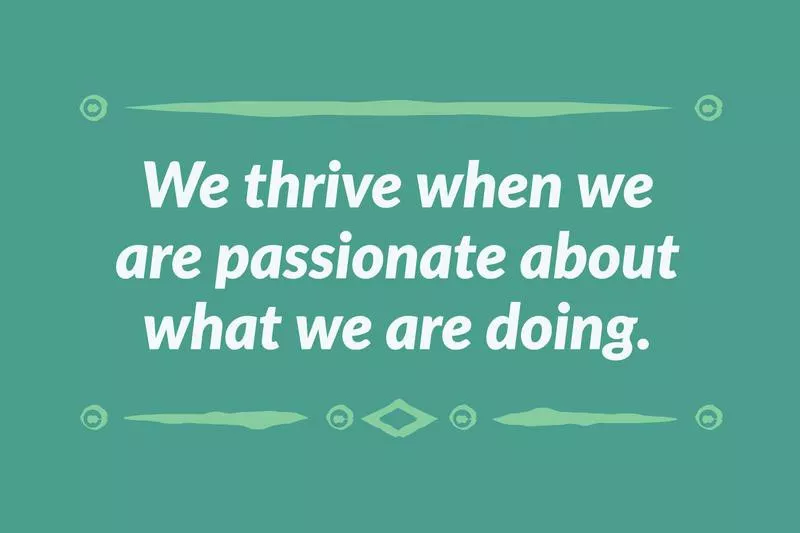
A poor workplace environment can deter you from feeling attached to the work you want or even need to do. In addition to developing a psychological detachment, you may procrastinate more, make up excuses or be less enthusiastic to grow in the company.
“A toxic job can certainly make an employee feel less invested in work,” said Manly. “Jobs that feel unrewarding or stressful tend to result in a lower level of overall commitment. Indeed, we thrive when we are passionate about what we are doing.”
13. You’ve Become More Negative at Work
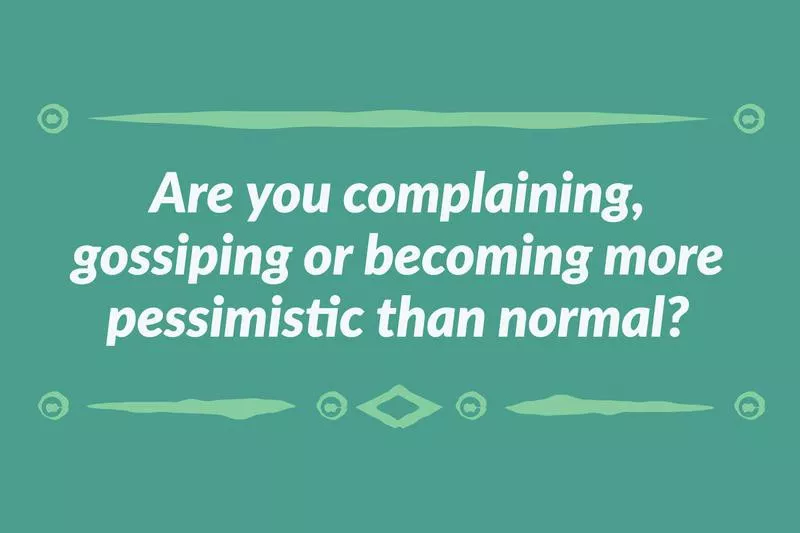
A clear sign that a job might not be a good fit is when your perspective on life and work has increasingly become more negative. If you notice you’re complaining, gossiping or becoming more pessimistic than normal, than you may want to reevaluate your job situation.
“[A]n employee may bring a negative, fearful attitude to a toxic workplace — of course, the work product will ultimately suffer, even if this is not the employee’s intention,” said Manly.
14. You Feel Extremely Depleted When You Leave Work
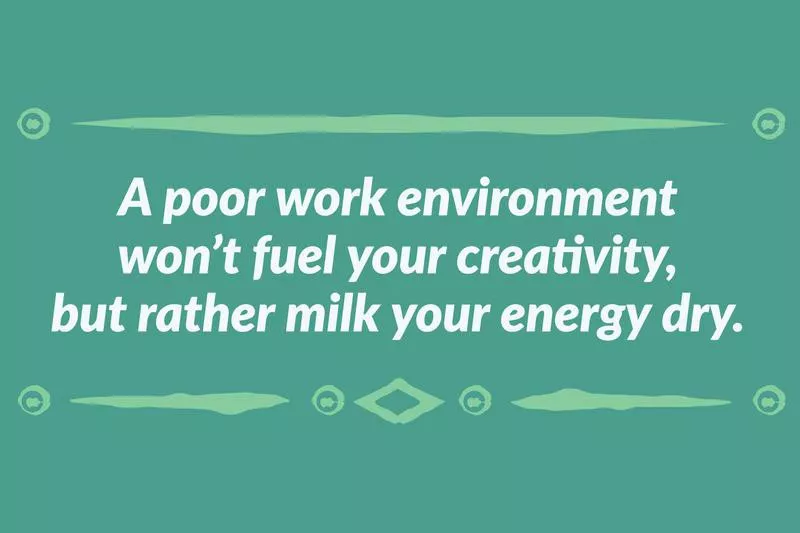
“If you leave work feeling negative and depleted day after day, this is a sure sign that something is not healthy in your work situation,” said Manly. “Of course, everyone can have a bad day at work now and again — even in the best work environments — but if the bad days occur chronically, it’s time to pay attention to the negative situation.”
A poor work environment won’t fuel your creativity, but rather milk your energy dry.
15. You Don’t Feel Valued
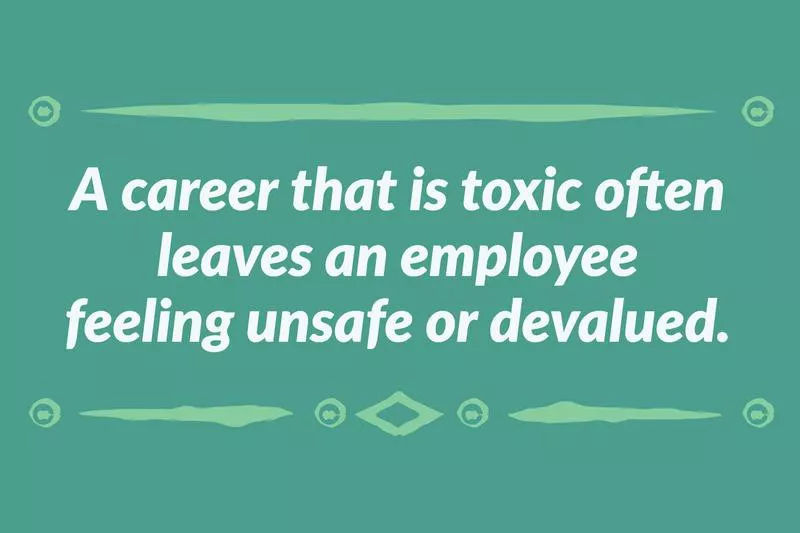
It’s natural for your mental health to be affected when you don’t feel valued at work. A toxic job can alter your self-worth, which can make you talk negatively about yourself. “A career that is toxic often leaves an employee feeling unsafe or devalued — there is often little sense of personal reward other than a paycheck,” said Manly.
Seeking Help

Getty Images
If you believe your mental health is suffering, please talk to a mental health professional. If you are having suicidal thoughts, please call the National Suicide Prevention Lifeline immediately at 1-800-273-TALK.